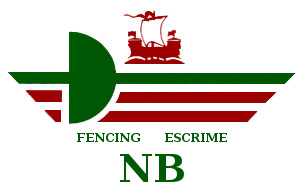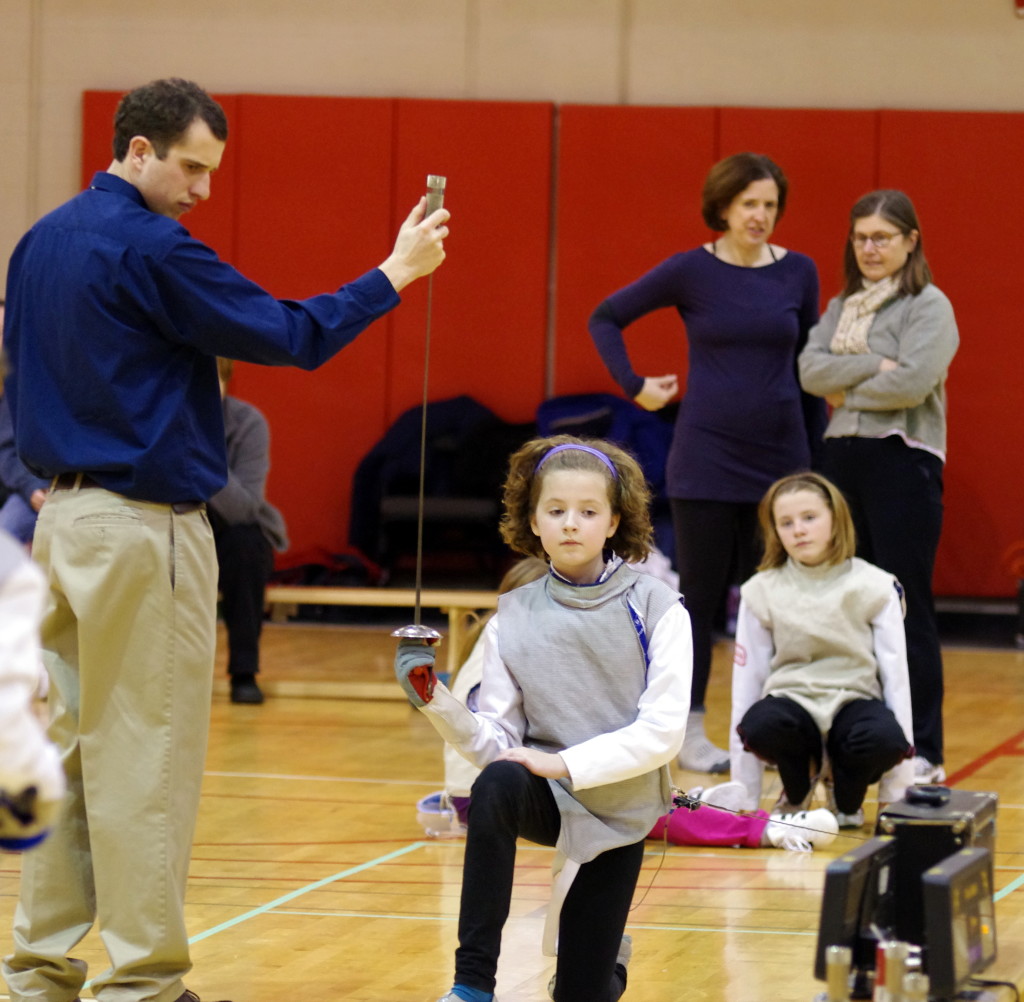Referee Development
REFEREE CERTIFICATION PROGRAM
Comments from members are welcomed
Introduction: The Canadian Fencing Federation has placed the responsibility for the training and certification of “P” (Provincial) level referees with provincial branches. This program is designed to assist FENB members in gaining certification.
Elements of a Referee Development Program
- Recruit members to become referees.
- Educate and train candidates to gain relevant referee knowledge.
- Provide practical experience in clubs and at competitions.
- Provide mentorship by experienced referees.
- Recognize referees for their efforts.
Program Overview: A two level system: 1. Club level and 2. Provincial level is to be implemented for each weapon. Standards for both theoretical knowledge and practical skills shall be set. These standards will be reviewed during referee training clinics offered by FENB. Assessment for certification will involve a theory test (oral or written) and a practical test. Once “P” level certification is attained, referees must maintain a minimum level of refereeing activity and attend upgrading seminars from time to time.
Curriculum for Referee Training
Club Level Referee
Theory:
- Boundary Rules
- Common Yellow and Red penalties
- Right of way Rules (Foil & Sabre)
- Basic Terminology: attack, riposte, counter‑attack, remise
- Corner judge rules
Practical:
- Correct use of basic commands with signals
- Ability to move appropriately with the action.
- Ability to use corner judge system.
- Ability to establish correct starting distance.
- Ability to recognize & penalize common yellow card offences.
- Ability to award hits with 75% accuracy over 10 bouts.
Standards: Provincial Level Referee Program
Theory – Part 1: Introductory Clinic (6-7 hours)
- Professionalism and role of the referee
- Responsibilities and rights of the referee
- Tournament procedures
- Safety
- Dealing with injuries
- Dealing with equipment problems
- Overview of penalties and cards
- How to handle questions and appeals
Evaluation: There will be no evaluation at this clinic.
Theory – Part 2: General Rules Clinic (6-7 hours)
- Equipment regulations for individual competitors
- Penalties for on piste situations
- Rules regarding injury/indisposition
- Rules governing annulment of hits
- Rules for team competition
- Definitions and terminology
- Introduction to Priority
- Interpretation of actions
Evaluation: Written exam (30 questions – short answer & multiple choice)
Pass: 75%
Theory – Part 3: Weapon Specific Refereeing Clinic (9-12 hours)
Evaluation: Written exam
Pass: 75%
Practical Clinic:
- Correct use of terminology to describe action.
- Clear, audible decisions.
- Ability to award hits with 85% accuracy over 10 bouts.
Evaluation: Judge three 5 hit bouts and a 15 hit bout between experienced fencers.
Judging Supervised at Tournaments: After attending/passing these three clinics, can referee at tournaments supervised; must referee at least four tournaments (minimum of 12 hours).
Practice Exam: After accumulating a minimum of 12 referee hours, and with recommendation of supervisor, can be evaluated by another referee at a tournament (practical only) in a practice exam. Once have passed practice exam, minimal supervision is required for refereeing.
Provincial Exam: Can be then recommended by evaluating referee to challenge provincial exam (written and practical) at provincials under evaluation of out-of-province referee.
February, 2014


